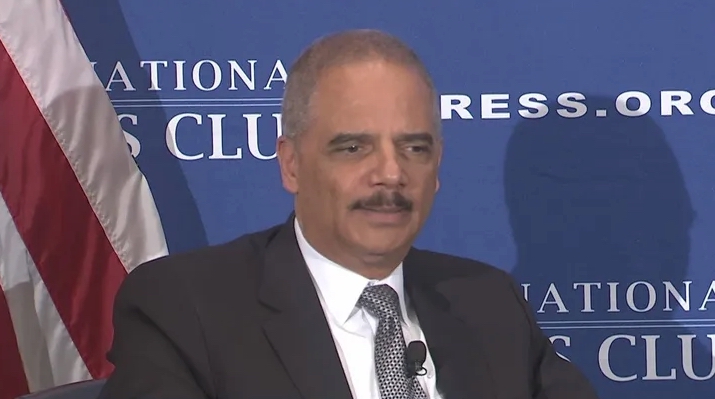Constitutional fealty, separation of powers, and the rule of law. It’s the tedious stuff of high school civics classes that put many a student head into amusement park spin.
But in present-day North Carolina, those issues permeate relations between Democratic Gov. Roy Cooper and the Republican-led General Assembly. The clash has manifested in marquee vetoes and separation-of-powers lawsuits.
Disputes over state laws also percolated in a public hearing Monday on proposed revisions to rules governing election processes.
A number of speakers said if the Bipartisan State Board of Elections and Ethics Enforcement adopts the proposals the agency would run afoul of existing laws. Proposed modifications include layering on multiple requirements to file an election protest, making it a nearly insurmountable barrier.
And that pesky separation-of-powers notion surfaced again. Critics said an administrative agency cannot write legislation, which the election board effectively would do in approving the proposed rules.
But we live in a time when some promote assigning more malleable qualities to firmly fixed laws, and constitutional checks and balances.
Take Laura Holley of Apex, for example. Where some see a necessity for clear boundaries in the legal system, Holley’s well intentioned testimony at Monday’s hearing might lead one to conclude her lens to the world is more relativist.
“Statutes, in my opinion, ought not to be rigidly, and doggedly followed as written if there are problems with ambiguity, or oppositional to the public’s best interest, or somehow can be improved upon either substantively or procedurally,” Holley said.
“Just because a policy has become written into law, and has become status quo, that to me is not good enough,” Holley said. “Society and its systems, and empirical realities are ever evolving. And legal and political odysseys need to be similarly fluid.”
Durham County Republican Tom Stark said the proposed rule change regarding election protests violates constitutional rights of assembly, and redress of grievances.
“One side of the political debate seeks to win” by making it administratively burdensome to file voter challenges, and including language on the protest form warning about potentially committing a crime if a protest is rejected, Stark said.
Fortunately, there is an elasticity to our system of government that allows for the very process Holley advocates. But that structure wisely disallows legal evolutions to be transacted by unelected, unaccountable bureaucrats. That is the business constitutionally reserved to the legislative branch, whose checks and balances include a public that votes on its actions.
Critics questioned not just the legality of the rules changes, but the wisdom and impact of implementing them.
“The result of these rules is to erect a new barrier to citizen participation, and eliminate the election safeguards” in existing law, Paul “Skip” Stam, a former state lawmaker who once sat on committees dealing with election laws, wrote in his submitted comments.
Glenda Clendenin, director of the Moore County Board of Elections, said the proposed change to empower election directors to dismiss voter challenges is troubling. She said that is a quasi-judicial action reserved by law for an election board.
Should she make those determinations, rather than simply advising the board on how to conduct the process, Clendenin said, she would run the risk of angering either the Republican or Democratic board members. That could negatively affect her relationship with them.
Three of the 13 speakers at the public hearing were interns from the Southern Coalition for Social Justice. They seemed cozy with the notion of expanding government control through the state’s administrative code.
Catherine Hipps said many election protests filed by the McCrory campaign in 2016 were meritless, and targeted minorities. She supported the more restrictive proposals on voter protests, and offered recommendations for tightening them even further.
Jasmine Nethels said many voters were “either intimidated or very deterred” at several voting precincts last year. She said the election board should provide regulations to chief election judges on how to monitor buffer zones at polling places. The regulations should leave no room for discretion, she said.
Laura Williamson encouraged a broader interpretation of provisions for polling place illiteracy assistance to encompass non-English speaking voters.
Proposals making it more difficult for election observers to function at polling places was another rule change that drew opposition.
Orange County Democrat Ed Tiryakian said rules regarding election observers at polls should be clarified and made uniform to allow an observer to come and go from a precinct for reasonable purposes. Some election judges forbid re-entry if an observer leaves for any reason.
Orange and other counties enforce a rule requiring election observers to remain in the polling place for a four-hour shift even though there is no law supporting that practice, Tiryakian said. He likened that to false imprisonment, and said it makes it difficult to find observers willing to serve, especially in rural counties.
“The observers are all we have to make sure there’s no wholesale fraud going on,” said Jay Delancy, executive director of the Voter Integrity Project.
Proposed rules changes make it easier to keep them out of the polling place, which flies in the face of open and transparent elections, Delancy said. Chief judges have too much subjective discretion in determining if an election observer stepping out temporarily creates a disruption, he said, and legislation giving observers statutory rights is needed.
Wake County resident Marguerite Creel presented, perhaps, the most penetrating question of the hearing.
“When will a real audit, one that looks at paperwork, be conducted?” she asked.
The reason for so many disagreements over voter protests is “the faith in the validity of our voter rolls has been shaken,” Creel said, calling the legitimacy of elections into question.


